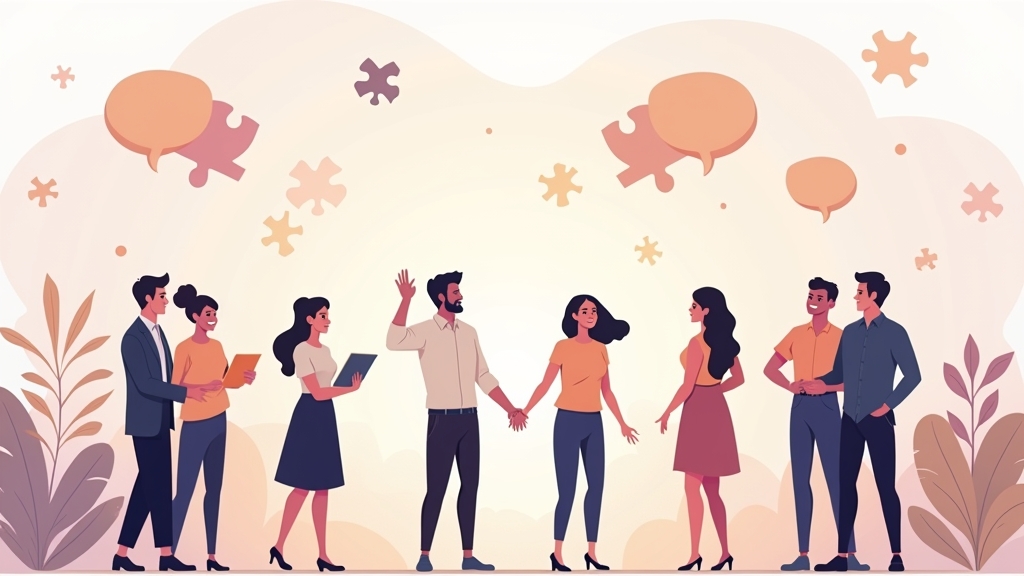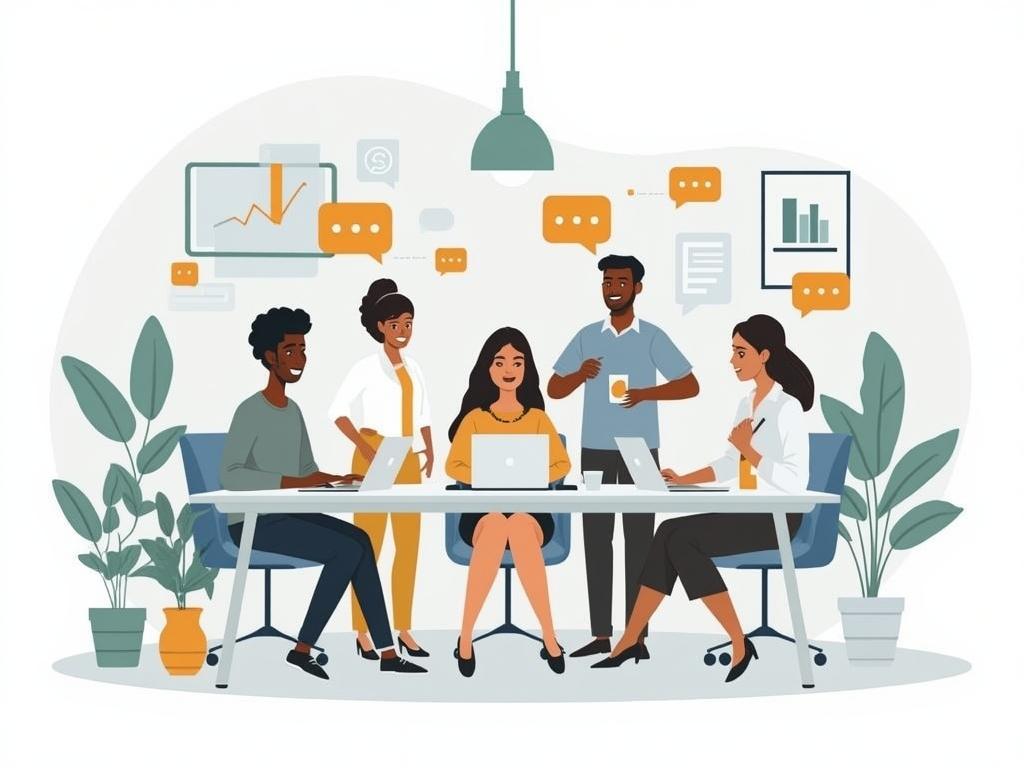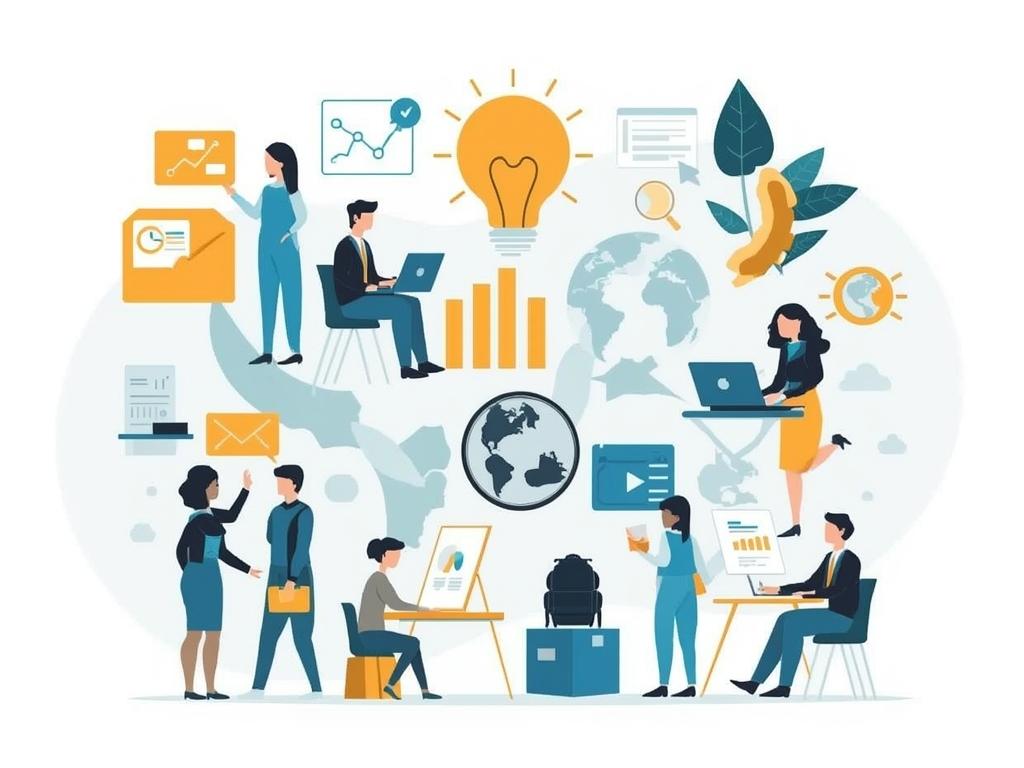What is emotional intelligence and why is it fundamental in relationships?
Have you ever wondered why some people seem to handle conflicts more calmly, while others get out of hand easily? The answer may lie in emotional intelligence (EI)This is a concept popularized by psychologist Daniel Goleman. In a nutshell, EI is the ability to recognize, understand and manage one's own emotions, as well as to positively influence the emotions of others.
In relationships - whether personal or professional - this skill makes all the difference. Imagine a co-worker criticizing your project in front of the team. Without IE, you might react angrily, affecting your image. With IE, you take a deep breath, analyze the feedback and respond constructively. Those who master this skill not only avoid unnecessary conflicts, but also build more authentic and lasting connections.
But how does EI work in practice? It is divided into five pillars: self-awareness, self-regulation, motivation, empathy and social skills. Each of these aspects helps you to better navigate challenging situations. For example, empathy allows you to understand the other person's needs, while self-regulation prevents impulses from ruining an important dialog.
Think of a leader who inspires his team even under pressure. He doesn't shout or blame others; he listens, adjusts strategies and keeps his cool. That's the power of emotional intelligence in action. And the good news? It can be developed with practice and reflection. How about starting today?
Self-awareness: the first step to mastering your emotions
Before you can manage your emotions, you need to identify them clearly. Self-awareness is the basis of EI - it's like an internal radar that picks up your feelings in real time. For example: are you angry because your partner forgot an appointment, or does this anger hide a bigger frustration, such as feeling undervalued?
A powerful exercise is emotional diary. Take five minutes at the end of the day to write down situations that aroused strong emotions and how you reacted. Over time, patterns will emerge. You may notice that stress at work increases your impatience at home. Knowing these triggers is half the battle to controlling them.
Another technique is reflective pause. Before responding to a provocative e-mail or criticism, ask yourself: "What am I feeling now?" e "Why does it affect me so much?". This simple pause prevents impulsive reactions and makes room for more balanced responses.
Remember: self-awareness is not about judging yourself, but about observing yourself without filters. Even "negative" emotions, such as jealousy or envy, have something to teach us. They reveal values and insecurities that deserve attention. Are you willing to face this internal mirror?
Self-regulation: how to control impulses and maintain balance
Knowing how to identify emotions is crucial, but what you do with them is the true test of EI. Self-regulation is the ability to channel intense feelings productively, without repressing them or exploding. Imagine a manager who, on receiving an unfair complaint, responds calmly instead of hitting back. This self-control preserves relationships and inspires respect.
An effective strategy is method 6-2-6This physiological pause reduces tension and "resets" the emotional brain. Another tip is replace catastrophic thoughts with realistic questions. Instead of "This will ruin my career!"try "What can I learn from this situation?".
Advertising
Of course we all have moments of weakness. The difference is how we deal with them. If you've said something offensive in an argument, acknowledge the mistake and apologize is an act of emotional maturity. It shows that you prioritize the relationship over your ego.
And when the emotion is positive? Self-regulation also applies here. Celebrating achievements is healthy, but overdoing it can lead to arrogance or unrealistic expectations. Balance is the key word.
Empathy: the key to connecting deeply with others
If self-awareness and self-regulation focus on you, the empathy directs your gaze towards the other person. It's the ability to put yourself in someone else's shoes, understanding their emotions and perspectives - even when they differ from your own. In a polarized world, this skill is a superpower.
How to practice? Start with active listening. Instead of formulating answers while the other person is talking, really concentrate on what they are saying. Observe body language and tone of voice. A "It looks like that hurt you a lot" is worth more than generic advice.

At work, empathy transforms dynamics. A leader who asks "How can I support you?" instead of "Why didn't you do it right?" builds trust and loyalty. Small gestures, such as remembering a colleague's birthday or asking about a sick relative, create more human environments.
But beware: empathy doesn't mean agreeing with everything or absorbing someone else's pain. You can understand a demanding boss without writing yourself off, for example. The line between understanding and self-sacrifice is blurred.
Social skills: building bridges instead of walls
There's no point in understanding emotions if you can't communicate them effectively. Social skills - such as assertiveness, negotiation and teamwork - are the crowning achievement of EI. Think of a conflict mediator who turns heated discussions into creative solutions.
A valuable trick is to use non-violent language. Phrases like "I feel overwhelmed when tasks are passed on at short notice. Can we adjust that?" are more effective than accusations. Another tip is specifically praise ("I love how you organized the data") instead of generalizing ("Good job").
A support network also counts. Cultivating genuine relationships - whether it's a friend to vent to or a professional mentor - provides emotional resilience. Do you invest time in these connections or leave them on autopilot?
Emotional intelligence in the workplace: competitive advantages
In the corporate world, IE is not a "soft skill" - it is strategic advantage. Professionals with high EI adapt better to change, lead with inspiration and solve crises with creativity. A TalentSmart study shows that 90% of the best performers have above-average EI.
How to apply it? In feedback, focus on behavior, not personality. Say "The report had inconsistent data" instead of "You're sloppy". In meetings, read the roomIf energy is low, a pause or an open question can re-engage the team.
What about conflicts? Separate people from problems. One "Let's find a solution that works for both of us" is more productive than fighting over the culprits. Emotionally intelligent leaders don't have followers - they have partners.
Daily practices to strengthen your emotional intelligence
Developing EI is like working out a muscle: it requires consistency. How about including these practices in your routine?
1. Mindfulness meditation: 10 minutes a day improves focus and emotional regulation. Apps like Headspace or Lojong can help.
2. Honest feedbackAsk people close to you to point out your strengths and areas for improvement.
3. Diverse reading: Biographies and fiction broaden your ability to see other perspectives.
4. Mental simulationsBefore important events, visualize scenarios and your reactions.
Remember: progress comes with failures. One bad day doesn't erase months of evolution. What will you practice today to become emotionally stronger tomorrow?
Conclusion: healthier relationships start with you
Emotional intelligence isn't about being perfect - it's about being conscious and intentional. Each step on this journey improves not only your relationships, but your quality of life. Conflicts become opportunities. People become allies. And you? You become the best version of yourself.
How about starting now? Think of a recent situation that aroused strong emotions. How could you have handled it differently with IE tools? The invitation is out.



